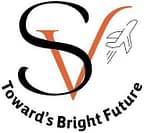
Immigration, Refugees and Citizenship Canada (IRCC) has recently conducted its second Express Entry draw of the week, marking a significant milestone with the inaugural draw focused on candidates in transport occupations. This initiative underscores Canada’s commitment to addressing urgent labor shortages in the transport sector while enhancing its economy through skilled immigration.
On September 20, IRCC extended invitations to 1,000 candidates with experience in transport occupations to apply for permanent residence. To receive an Invitation to Apply (ITA), candidates needed to attain a minimum Comprehensive Ranking System (CRS) score of 435.


Furthermore, on September 19, IRCC also issued 3,200 invitations to candidates through an all-program draw, where the minimum CRS score required was 531.
The First-ever Express Entry Draw for Transport Occupations Today’s draw marks the first-ever category-based selection draw within the Express Entry system, specifically targeting candidates with work experience in transport occupations. This strategic move is in response to the critical labor shortages prevailing in this sector.
Minister of Transport, Pablo Rodriguez, emphasizes the importance of the transportation sector in Canada’s economy and the need to invest in the skilled individuals who play pivotal roles in transporting people and goods. Occupations such as truck drivers, pilots, aviation mechanical engineers, and seafarers are integral to Canada’s economic growth and resilient supply chains.
Rodriguez explains, “Filling vacancies in these professions will boost economic growth and create stronger and more resilient supply chains.”
Express Entry Draws this Summer This summer has witnessed an increase in Express Entry draws compared to previous years, primarily attributed to the introduction of category-based selection rounds. However, until this week, there had been no draws since August 15, during which 4,300 candidates received ITAs in an all-program draw. IRCC has not provided a specific explanation for the pause in draws.
Understanding Express Entry Express Entry serves as an application management system for three prominent economic immigration pathways in Canada: the Federal Skilled Worker Program, the Federal Skilled Trades Program, and the Canadian Experience Class. Each of these programs has distinct eligibility criteria, yet they all employ the Comprehensive Ranking System (CRS) to assess and rank candidates based on various human capital factors such as language proficiency, age, work experience, occupation, and education. Candidates with the highest CRS scores stand the best chance of receiving ITAs for permanent residence in Canada.
Candidates who have received a provincial nomination within the Express Entry system gain an advantage, as they automatically receive an additional 600 CRS points. This proves advantageous since most Express Entry draws typically feature CRS score ranges between 350 and 550, depending on the specific program or category.
Category-Based Selection IRCC introduced six new categories eligible for category-based selection Express Entry draws on May 31. These categories include candidates with strong French-speaking abilities and those with work experience in sectors like healthcare, STEM professions, trades, transport, and agriculture and agri-food.
Since the introduction of these categories, IRCC has conducted draws for candidates in healthcare professions, STEM professions, trades, and those with proficiency in French. Eligible candidates for an ITA under category-based selection must still be part of an Express Entry program, and having a higher CRS score remains advantageous, as candidates are ranked against each other.
IRCC has emphasized that these new categories aim to help Canada address pressing job vacancies in high-demand sectors and contribute to strengthening the nation’s economy. The selection of these categories followed extensive consultations with provincial governments, business associations, and other partners and stakeholders of IRCC.
